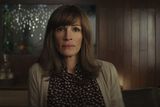Keeping it reel: can cinema survive Netflix and the studios' aversion to original screenplays?


In case you haven't noticed, the film industry is in crisis. That might sound like an odd thing to say as Avengers: Endgame closes in on Avatar's all -time box office record having been released in cinemas for a second time, but behind the rampant success of big-budget fantasy franchises lies confusion, uncertainty, and rapidly shrinking resources for smaller film-makers and producers.
A string of Hollywood blockbusters released in 2019 have signally failed to live up to expectations: Men in Black: International, Godzilla 2, How to Train Your Dragon 3 and Lego Movie 2 all fared poorly at the box office. And while this might sound like good news in one sense, evidence perhaps that a public weary of endless sequels and remakes are voting with their feet, the underlying trend is more worrying. Because many in the industry now fear that people may soon stop going to the cinema altogether.
Like rats on the Titanic, film stars have been among the first to notice that something is amiss: witness Meryl Streep, a Hollywood queen if ever there was one, showing up on Big Little Lies with an attention-grabbing performance that would not be out of place in a Gaiety panto. George Clooney can currently be seen playing a parade-obsessed officer in Catch 22 on Channel 4, Julia Roberts recently headed up the hit Amazon show Homecoming, and Amy Adams got rave reviews for her performance in HBO's Sharp Objects last year.
Not so many years ago, all these stars would have been deemed too big for the small screen, but now all bets are off, and big actors are following the good writing away from cinemas and into mainly pay-per-view television.
Two huge forces have propelled this migration. First, there's Hollywood's now pathological aversion to original screenplays and ideas, which has driven the big studios into overarching action and fantasy franchises that offer little room for thespian subtleties, and few roles for actors beyond a certain age. The prestige Hollywood dramas, romcoms and comedies, which once offered the best chance of Oscar glory, have all but disappeared, leaving seasoned stars with little room for manoeuvre.
And then there's Netflix. The streaming service, which began creating original television shows in 2013 to expand its online library, branched out into movie production in 2015 and has now become a major player. Last year, Netflix produced 80 features, the same amount as the big Hollywood studios combined. And though they are (to put it politely) of varying quality, Netflix finally landed the big fish at this year's Oscars when Alfonso Cuarón's Roma won Best Picture.
In other words, they're here to stay, which is only a problem if you like going to the cinema. Because Netflix have shown robust contempt for the cinema distribution model that has driven the movie business since its foundation, giving high quality films like Okja or Roma only brief, symbolic releases, and not releasing the bulk of their output in cinemas at all.
Though purists might wring their hands at this, Netflix's approach is entirely logical from their point of view. Their relatively cheap monthly payment model has netted them 150 million subscribers worldwide and counting, and though the company has built up formidable debts frantically making and buying the TV shows and movies it needs to keep its format fresh, executives at the company have admitted it's sometimes hard to spend the huge movie development budgets at their disposal.
Netflix is not cinema's friend, and actively seeks to bypass the old theatre distribution model completely in favour of their own very lucrative online releasing strategy. The big studios long ago took note of this, and Disney, Warners and the others will soon unleash online streaming services of their own.
Disney+ launches this November, and the giant conglomerate has been busily removing all its prestige movies from rival streamers like Netflix and Amazon Prime. From this winter on, Disney fans will only be able to access their favourite films through the subscription based-Disney site. How long, one wonders, before the company's bosses begin pondering the wisdom of theatrically releasing a new movie when it could make an even bigger killing online?
That day, perhaps, is some way off, but Disney now owns the rights to so much stuff - the Marvel films, Star Wars, Pixar, all of 20th Century Fox's back catalogue - that if it did decide to side-swerve movie theatres for a big-budget release, the fallout could devastate cinema distribution in the US and elsewhere.
An optimist might say that removing the never-ending parade of superhero films and fantasy franchises from multiplexes would clear the way for more interesting, grown-up stuff, but the truth is, if it happened right now, it would spell their death knell. No one is making grown-up mainstream dramas or comedies in significant numbers, and unless Hollywood wakes up and smells the napalm, no one is likely to start doing so any time soon. The belief that only teenagers and kids go to the movies has become self-perpetuating, and led to the current deluge of noisy, shallow action and fantasy franchises that could well be traditional Hollywood's death rattle.
Or possibly not. Cinema has faced existential threats in the past, like the transition to sound in the late 1920s which transformed the industry overnight and ended the glittering careers of many a superstar. In the 1960s, when television sets became ubiquitous in American homes, many pundits gloomily predicted that cinemas would go the way of the dodo. Instead, in the 1970s, a rising generation of film-makers and writers created a new golden age.
So there's hope, right? Couldn't that happen again? I'm not entirely sure, because for mainstream film-making to thoroughly reinvent itself, new writers and original screenplays would have to be embraced in a way they haven't since the early 1990s. And this seems unlikely in an industry now dominated by Disney, which is currently obsessed with painstakingly remaking all its classic cartoons as live-action or CGI-enhanced products.
The online wars are squeezing the market for independent film producers, whose work struggles to make it into non-art house cinemas anyway. All of which leads some experts to predict that cinemas will become fewer, and only fill for the release of so-called 'event movies', like Disney and superhero films. Of course no one is 'doing this' to us: cinema, in theory at least, is market led, and the arrival of Netflix, Amazon Prime, etc has made us all less inclined to bother our arses going to the movies. Which brings us back to the central question of whether or not the cinema-going experience is something worth defending. So what if multiplexes get boarded up and cinema, like opera, becomes the preserve of snooty French film-lovers like your correspondent?
That would be awful, because we all sit at home too much already, trying to watch Netflix dramas while simultaneously keeping an eye on Twitter or Snapchat. Cinema-going is communal, and audiences, forced to abandon their phones and actually concentrate, feed the energy of good mainstream movies.
I go to a lot of morning movie screenings attended by a few grumpy colleagues, two cats and a dog. In this funereal atmosphere, comedies suffer the most, and I've often been amazed, when attending a screening of even a modestly funny film with a full audience of actual people, to note how infectious laughter and enjoyment can be.
Imagine seeing Jaws or Star Wars or The Godfather or Titanic for the first time on a TV screen at home? Let's be honest: it would suck.
Cinemas are worth saving, but something needs to change pretty fast if they're to survive.
Join the Irish Independent WhatsApp channel
Stay up to date with all the latest news
















